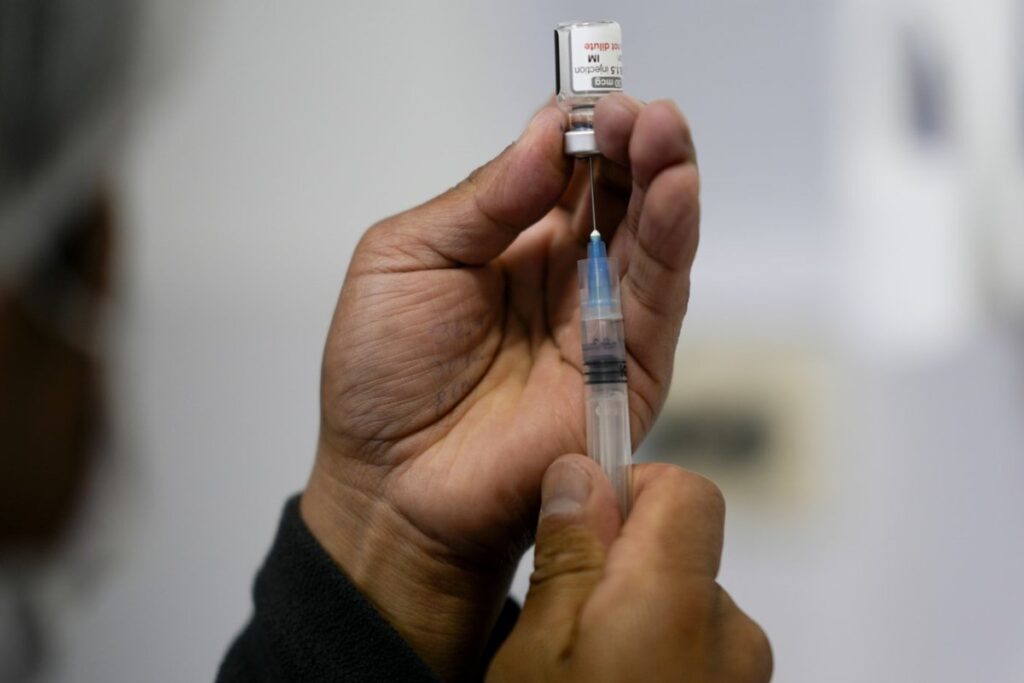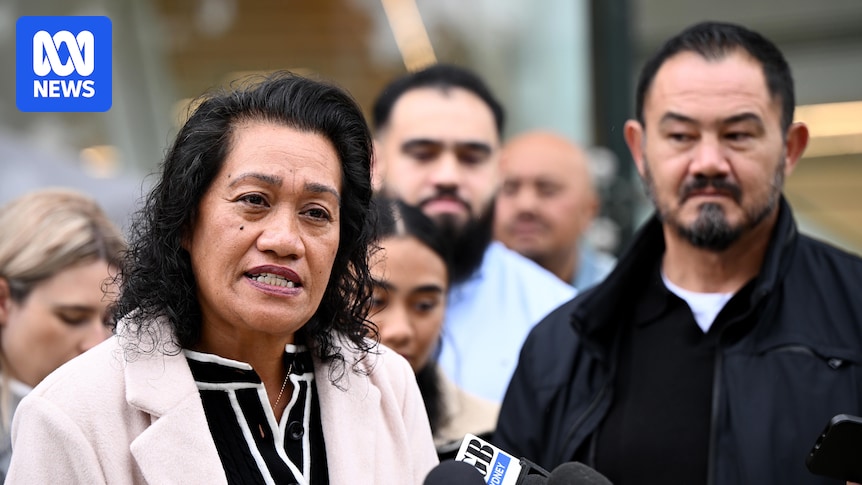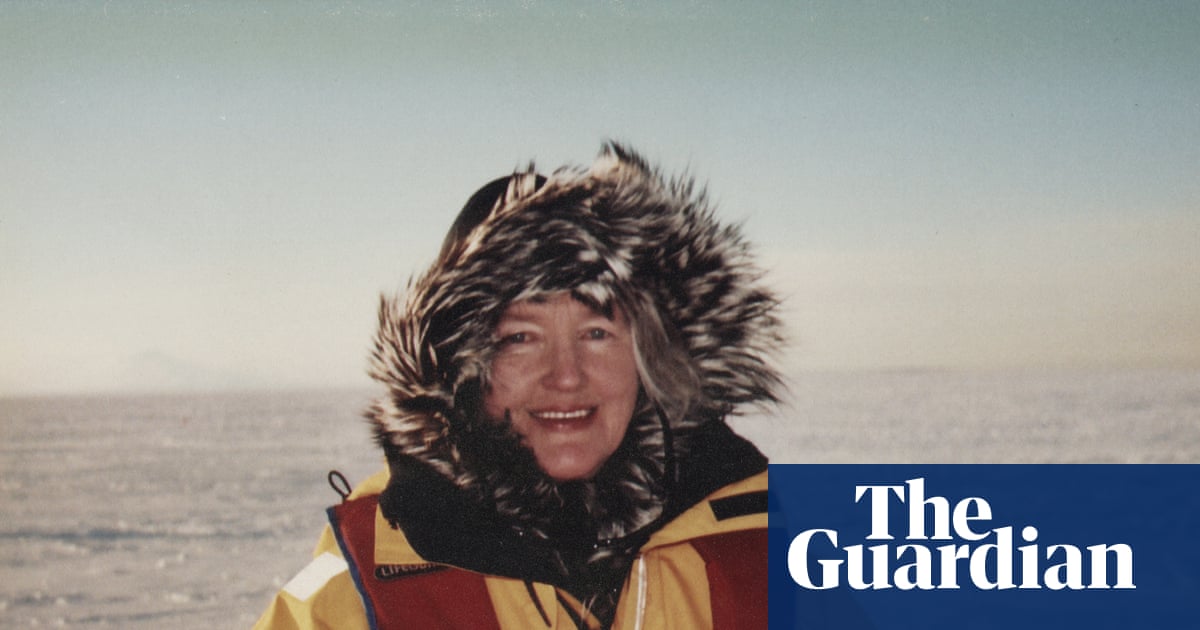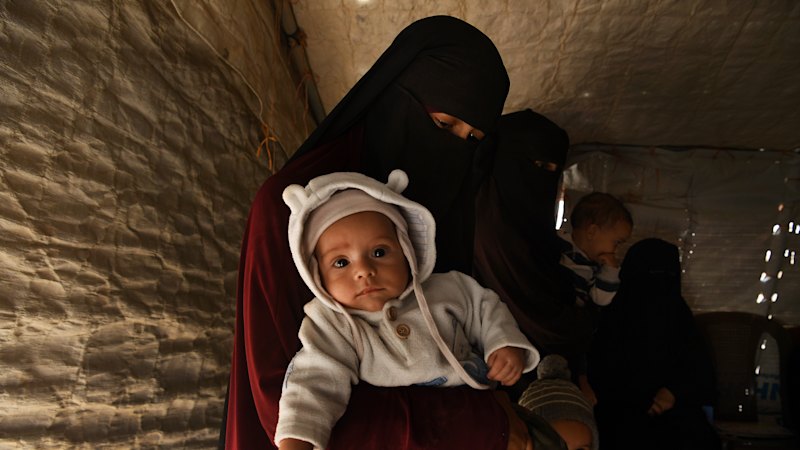
LONDON (AP) — More than 14 million children worldwide did not receive a single vaccine in 2024, maintaining the same alarming figure as the previous year, according to estimates released by U.N. health officials. Nine countries accounted for over half of these unprotected children, underscoring persistent global disparities in vaccine access.
In the annual report on global vaccine coverage published on Tuesday, the World Health Organization (WHO) and UNICEF revealed that approximately 89% of children under one year old received the first dose of the diphtheria, tetanus, and whooping cough vaccine in 2024, mirroring the coverage rate from 2023. The completion rate for the three-dose series saw a marginal increase to 85%, up from 84% the previous year.
Impact of International Aid Withdrawal
The report’s release coincides with significant geopolitical shifts, notably the reduction of international aid, which officials warn will complicate efforts to decrease the number of unvaccinated children. In January, U.S. President Trump announced the country’s withdrawal from the WHO, freezing nearly all humanitarian aid and initiating the closure of the U.S. AID Agency. Subsequently, Health Secretary Robert F. Kennedy Jr. declared the cessation of U.S. funding to the vaccines alliance Gavi, criticizing the group for allegedly ignoring scientific evidence.
Kennedy, known for his skepticism towards vaccines, has previously questioned the safety of the diphtheria, tetanus, and whooping cough vaccine, despite its proven efficacy and safety through extensive research and practical application. According to U.N. estimates, vaccines prevent between 3.5 million to 5 million deaths annually.
“Drastic cuts in aid, coupled with misinformation about the safety of vaccines, threaten to unwind decades of progress,” said WHO Director-General Tedros Adhanom Ghebreyesus.
Unequal Access and Regional Disparities
U.N. experts highlighted that access to vaccines remains “deeply unequal,” with conflict and humanitarian crises further exacerbating the situation. Sudan reported the lowest coverage for the diphtheria, tetanus, and whooping cough vaccine. The data identified nine countries—Nigeria, India, Sudan, Congo, Ethiopia, Indonesia, Yemen, Afghanistan, and Angola—as accounting for 52% of all children who missed out on immunizations entirely.
Meanwhile, the report noted a slight increase in global measles vaccine coverage, with 76% of children receiving both doses. However, experts emphasize that a 95% coverage rate is necessary to prevent outbreaks of this highly contagious disease. Last year, 60 countries reported significant measles outbreaks, according to WHO data.
Resurgence of Measles
The United States is experiencing its worst measles outbreak in over three decades, while Europe has seen a dramatic surge, with 125,000 cases reported in 2024—double the number from the previous year. This resurgence was tragically underscored last week when British authorities confirmed the death of a child from measles in a Liverpool hospital. Despite ongoing efforts to increase awareness, only about 84% of children in the U.K. are vaccinated against measles.
“It is hugely concerning, but not at all surprising, that we are continuing to see outbreaks of measles,” said Helen Bradford, a professor of children’s health at University College London. “The only way to stop measles spreading is with vaccination. It is never too late to be vaccinated — even as an adult.”
Looking Ahead
The current situation poses significant challenges for global health initiatives aimed at increasing vaccine coverage. The withdrawal of critical funding and the spread of vaccine misinformation threaten to reverse decades of progress in immunization efforts. Health organizations continue to advocate for equitable vaccine access and emphasize the importance of maintaining high vaccination rates to prevent disease outbreaks.
As the world grapples with these challenges, the focus remains on securing international cooperation and support to ensure that all children, regardless of their geographic location, have access to life-saving vaccines.







